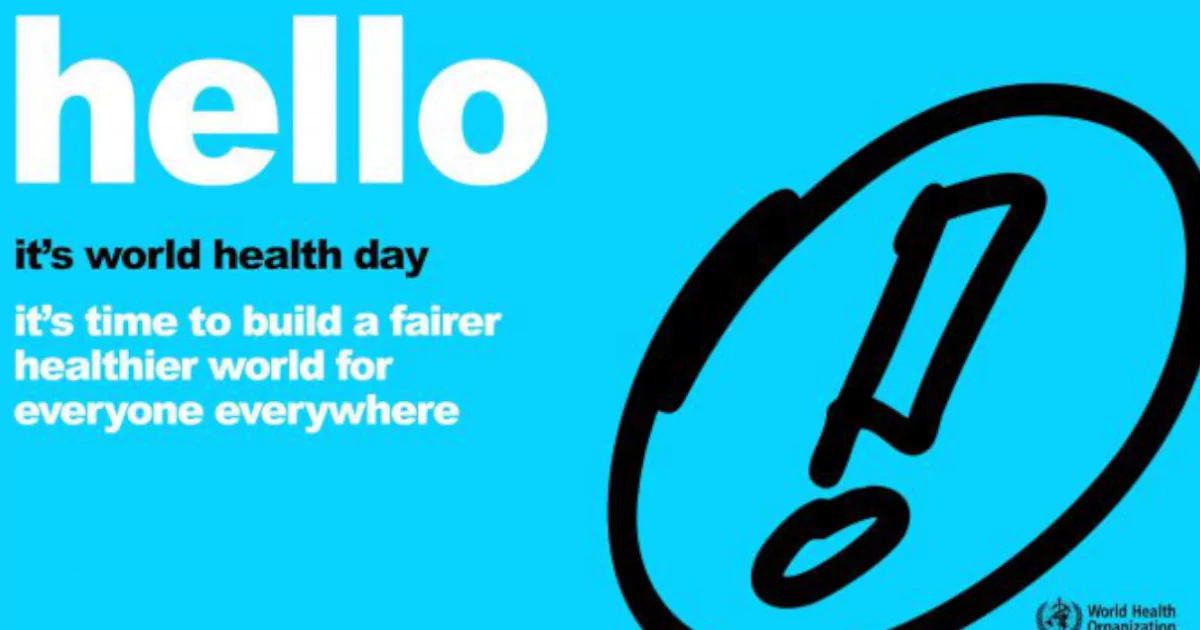
Learn About World Health Day 2021 and Global Health Inequity
Each year, we celebrate World Health Day on April 7 to raise awareness for important health issues. The World Health Organization (WHO) picks a “specific health theme to highlight a priority area of concern” every year, and this year’s theme is “Building a fairer, healthier world for everyone.”
World Health Day 2021: From theme to global campaign
The WHO went on to state that, “[t]he COVID-19 pandemic has undercut recent health gains, pushed more people into poverty and food insecurity, and amplified gender, social and health inequities.” This includes already vulnerable populations, who have been disproportionately affected by COVID-19, due to higher levels of exposure and less access to quality healthcare.
“The cost of COVID-19 is so high that it demands we do things differently: that we commit to building a fairer and healthier world by taking health equity much more seriously than before—and meet head-on the social and economic factors that cause health inequities.”
According to a WHO report, called, “It’s time to build a fairer, healthier world for everyone, everywhere. World Health Day 2021: Health equity and its determinants.”
For this reason, the focus of this year’s World Health Day is health inequity. However, it’s more than just a day—it’s the beginning of a year-long global campaign. The WHO is “calling on leaders to ensure that communities are at the forefront in decision-making processes […] and that everyone has living and working conditions that are conducive to good health.” They also “urge leaders to monitor health inequities and to ensure that all people are able to access quality health services depending on their needs and values within their communities.”
Lessons learned during the COVID-19 pandemic
In addition to the WHO’s new campaign, CNN highlighted some more lessons the world has learned during the COVID-19 pandemic:
- Health is about more than your body.
- Health and equity are inextricably linked.
- Comorbidities [related medical conditions] shouldn’t be dismissed.
- Human contact is critical to our well-being.
- We are resilient creatures.
In alignment with the WHO campaign to address health inequity, the Centers for Disease Control and Prevention (CDC) came out with a strategy, called “Accelerating Progress Towards Reducing COVID-19 Disparities and Achieving Health Equity,” which outlines immediate actions that can and are being performed already to address and reduce health disparities.
CDC strategy to address health inequity
The four main priorities of the CDC’s strategy include:
- Expanding the evidence base.
- Expanding programs and practices for testing, contact tracing, isolation, healthcare, and recovery from the impact of unintended negative consequences of mitigation strategies in order to reach populations that have been put at increased risk.
- Expanding program and practice activities to support essential and frontline workers to prevent transmission of COVID-19. Examples of essential and frontline workers include healthcare, the food industry, and correctional facility workers.
- Expanding an inclusive workforce equipped to assess and address the needs of an increasingly diverse U.S. population.
Check out the WHO’s World Health Day website for more information and videos from the 2021 event.
Learn more about how Responsum Health supports the well-being of the chronic disease community by checking out Responsum for Pulmonary Fibrosis, Responsum for Chronic Kidney Disease, Responsum for Fibroids, and The Glaucoma Community by Prevent Blindness!

